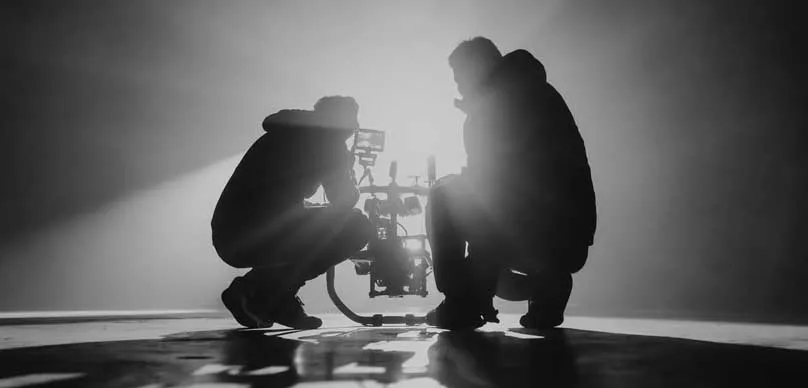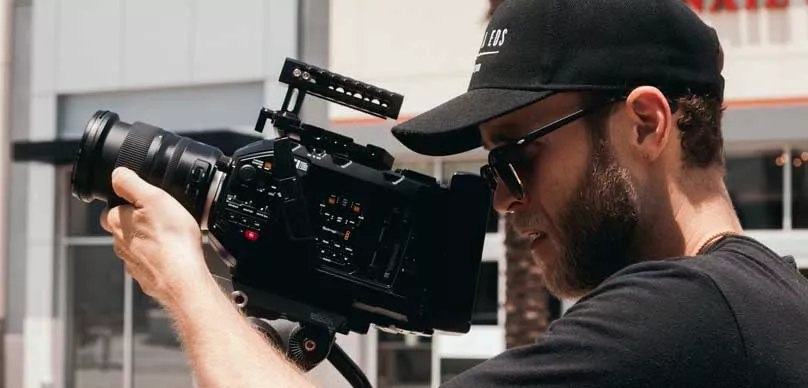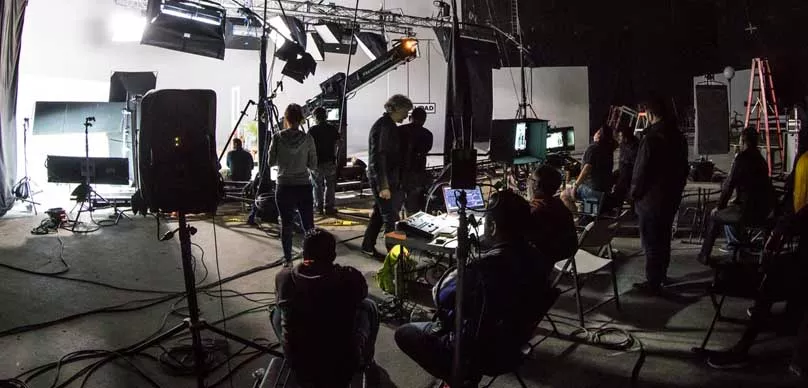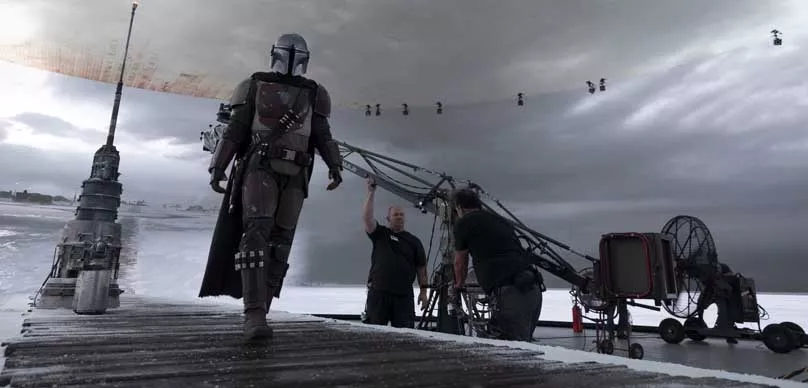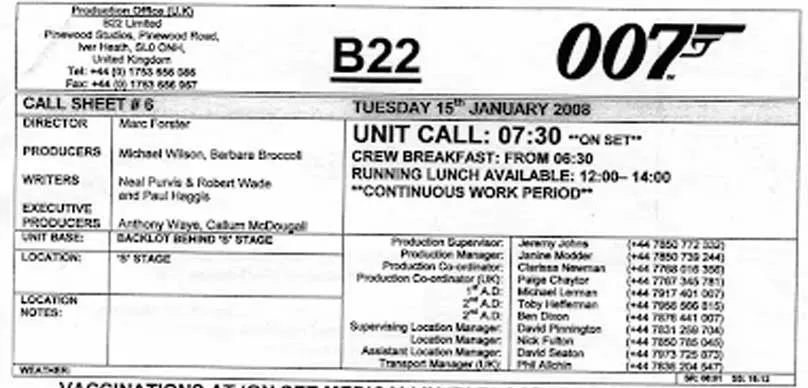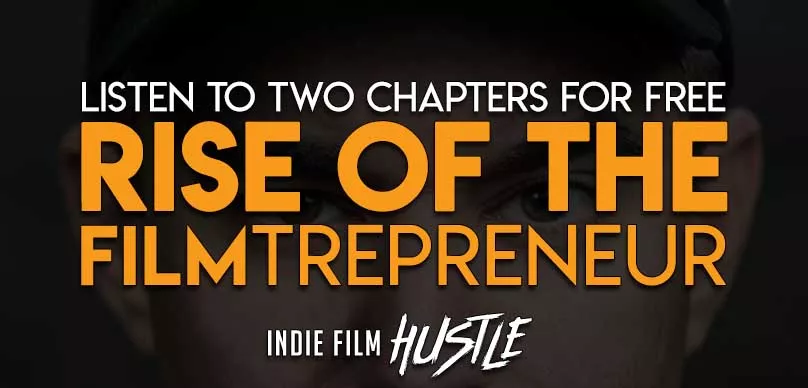Right-click here to download the MP3
We’ve all been taught that setting goals is important and they are but creating systems is even more powerful. How many times have you lost weight just to gain it back? How many half-written screenplays do you have sitting on your computer?
When your focus is only the goal then what happens after you achieve that goal? In this episode, I discuss how to create systems that will get you to your goals faster and keep you motivated along the way.
Shameless plug: This is Meg is now available for pre-order on iTunes at an early bird discount $9.99. Just go to www.thisismeg.com/itunes. I have a ton of content coming on how we are releasing the film so stay tuned.
Alex Ferrari 0:07
So guys, today we're going to talk about goals and why goals kind of suck. And I'm going to tell you why they kind of suck and why goals and goal setting might be hurting your journey more than helping your journey. And I know a lot of you go on Alex, what are you talking about setting goals is amazing. You got to set goals in life? If not, what are you going to go for and things like that. That's all great and dandy. But I feel that a lot of times, and this has happened to me multiple times. And I've seen this happen to many filmmakers and friends of mines, colleagues of mine, as well as people I've worked with over the years, there's when you focus on a goal, when you get to the goal, there's nowhere else to go. So if your goal is to make a feature film, let's say and and you make that feature film after that, then what I had a lot of clients and people I worked with over the years that had this syndrome, it was called failure to finish syndrome, they did not want to psychologically or subconsciously did not want to finish it because when it was done when the movie was done, they would have nothing to do, they would have nowhere to go, nothing to do. So they keep tweaking and tweaking and tweaking and tweaking because they wanted to just keep going and they would make things up and they would just be crazy. And I saw that I was like, wow, this is just crazy. They were afraid of getting to that goal. Because they knew once they got to the goal, there would be nothing left, they will have to start from scratch again. And anyone who has made a feature film can feel that can know that anyone who's made a series of some sort videos of some sort know that once you get to that end, you've got to start from scratch. And it's hard. And it's really hard to get that ball rolling again. But if you use the mentality of just achieving that goal, that's where you fail. Because if you just achieve that goal, you have nowhere to go. I say, and I'm not the first to say this, but I say use systems instead This is what I do in my life is use a system. So let's say that you're going to make, you're going to try to write a screenplay. And if you write that screenplay, it's a monstrous task. You want that's your goal. Your goal is to finish the screenplay to finish the screenplay. That's that to make up to write a screenplay, that's your goal. Well, if you go every day, and like, Oh, I'm gonna work on it a little bit here, I'll work on a little bit there. There's no real benefit to that. Because your goal is so far away that the day to day to get to that goal, there's nothing that's positive for you. You know, if you write one or two pages this day, maybe write another couple pages in that, you know, a couple days, a few days later, or things like that. There's nothing that's really pushing you forward. There's nothing really giving you any positive reinforcement to move forward because the goal is so damn far away. Now, if you work within systems, that changes dramatically your mindset because I get it I promise you that your success has almost no 80% or more to do with your own mentality of where you are, what you're trying to do and why you're trying to do it. So if you just don't see any momentum, any positive reinforcement for, for your journey for your hard work to go towards your goal, then you end up failing. And how many of you guys have half finished screenplays in your, on your computer, or videos and never finished getting edited or never got finished shooting or how many of you have half a feature film that you made or ran out of money or something else or whatever goal you might have had? That's half done. We all have those. Why? Because we work towards goals. And I don't believe that works systems works. And what's a system? A system is that you make up your mind that every day, you are going to write three pages a day towards that screenplay, every day, no matter how good or bad it is, you will write three pages a day. That is your mini goal. That is your system every day, no matter what you will write three pages. And at the end of 30 days, you will have a 90 page script. whether it's good or not, it's irrelevant. You will work towards that. But you have a screenplay done. You've learned you've worked forward, you've gone towards something. A lot of people always ask me Alex, How the hell do you do so much? You know, you you run num robot studios, which is a production company slash post company. You also have indie film, hustle, you run a podcast that you do two episodes, sometimes three episodes a week, you put out content at a ridiculous amount of rates on indie film, hustle, and you're doing most of this by yourself. How is that possible? How are you able to do that? It's because I create systems, I wouldn't be able to do that if I would have put out a goal saying I want to be a I want to be one of the best filmmaking podcasts out there. It's a such a wonderful goal to have in life, right in a goal in what you're trying to do. I want to make a feature film. That's another grandiose another grandiose goal. But what is a system that's going to get you to those goals. So what I do with indie film hustles, I set up systems every morning, I do this, I do that, I put out three, four or five articles a week, sometimes depending on the week. It's been a little slow lately, because I've been slammed on other jobs. But now I'm going to be starting to put back more and more content on indie film hustle, not only an indie film, hustle, but on the podcast and also the YouTube channel which I am going to start growing at a ridiculous clip, I'm going to be starting to put out content that you guys are not used to seeing on the on the YouTube channel in the coming weeks and months. And just keep an eye on that because I plan to have a day lose of content coming your way the tribes way. And anybody who happens to come over to any film, hustle calm will see it sometimes. And I've even said this on the podcast some times I'm doing a podcast at four o'clock in the morning. Because building indie film hustle is very important to me in is part of my life goal. life goals are different than my little mini goals. You know, life goals is like a career, I want to be a filmmaker. Well, you can create multiple systems within your life to get to those goals and keep moving that that bar forward and higher and higher. So you can keep growing. But I'll do that I'll wake up at four o'clock in the morning to do a podcast, or write articles, or get things ready for indie film hustle at early mornings, because it's part of what I'm trying to do. It's part of as part of my goal to help as many filmmakers as I can make their movies tell their stories make a sustainable life. Being an artist, that is that is I think my mission in life as well as me being a artist myself, a filmmaker myself, telling my own stories and sharing my journeys, of how I make those stories with you the tribe. I want to make sure that people listening to this in LA and Bangladesh, in Sweden, in Australia, anywhere you are listening to this in the world, that you get value that it moves you forward and that's part of my system. That's why I get up and do this every day. And it's not easy. It's hard work. It's damn ballbusting work sometimes especially when you're running a production company when you're working on post on a huge show. When you're you know raising a family and got to you know take the you know take the girls out to soccer or you know got to go to Chucky cheese for a birthday party as well as doing everything else I do. You know you there is no excuse guys. There are no excuses. If you want to do what you you when you say you want to do is be a filmmaker, be an artist be someone who can make a living doing this, it's going to be ballbusting work. And you're going to be doing it for a long, long time. But it's going to get you to where you want to be. And those systems that you put in place will help you. So let's put some systems in place right now I just gave you one. For screenwriting, you want to be a screenwriter, write three pages a day, for 30 days, do that 12 times. That's a year. Do that for 12 times. And you'll have 12 screenplays at the end of the year, I guarantee you, you'll be a better writer, from the moment you started, you'll be much better writer than when you started to when you finish in December. So you start in January as a bad Okay, maybe not even that great screenwriter, by by December, you will be better in one way shape or form, you will be a better writer. Okay, so you want to be a film, let's say you want to be a cinematographer. I want to be a cinematographer. I want to be a cinematographer on music videos on commercials on feature films. I want to be like Dickens, and and Joe and chivo. And all those guys. Well, great. So this is a system you got to place, you've got to learn something new every day. Every day, you watch three, four videos a day, you could set that number of what, three, four videos online every day, you take online courses every day, you get cameras and play around with lenses every day, you you just keep trying every day you do something small every day, even if it's 30 minutes, an hour, oh, Alex have a full time job. Fuck you. All right, I have more than thought four or five full time jobs, you can do it, you have 30 minutes or 30 minutes that you're waiting, watching a show on television or on Netflix or playing a video game, you can be doing something moving you closer toward your life goal, what you're trying to achieve in your life in your career, take 30 minutes, take an hour a day, wake up an hour earlier. And learn little steps every day learn, learn, learn in turn on other people set, give away your services for free when you're starting out so you can practice. Sure you can experiment do that. That's why that those are goals that that's a system that you can set up every day. And that's just a system I threw out there. But you can set up your own system, where there's something that you want to achieve, there is a way to get there and systems for me and in my career over the least the last two or three years has really changed the way I do things and how I work and how I'm able to achieve as much as I want to achieve every day. But if you create those systems that will help you get to where you want to be in your life goal in your career, and what you want to do and what kind of mark you want to leave on this planet before you leave. So thank you guys for listening to this episode. I hope it really little fire under your ass. Because I know we all need it every once in a while. And I hope this helps finding systems that work for you and whatever you're trying to do, whether it's lose weight, whether it's to get that girl to get that guy to get your relationship off the ground, to you know make your movie to write that screenplay to move forward in your career. Creating a powerful system that you can stick to will help you achieve those life goals.Now don't forget to head over to freefilmbook. com that's freefilmbook. com Download your free filmmaking or screenwriting audio book from audible. And as always keep that hustle going keep that dream alive. And I'll talk to you soon.
Sign up to receive email updates
Enter your name and email address below and I'll send you periodic updates about the podcast.
YOUTUBE VIDEO
LINKS
SPONSORS
- Bulletproof Script Coverage – Get Your Screenplay Read by Hollywood Professionals
- Audible – Get a Free Filmmaking or Screenwriting Audiobook
- Rev.com – $1.25 Closed Captions for Indie Filmmakers – Rev ($10 Off Your First Order)














